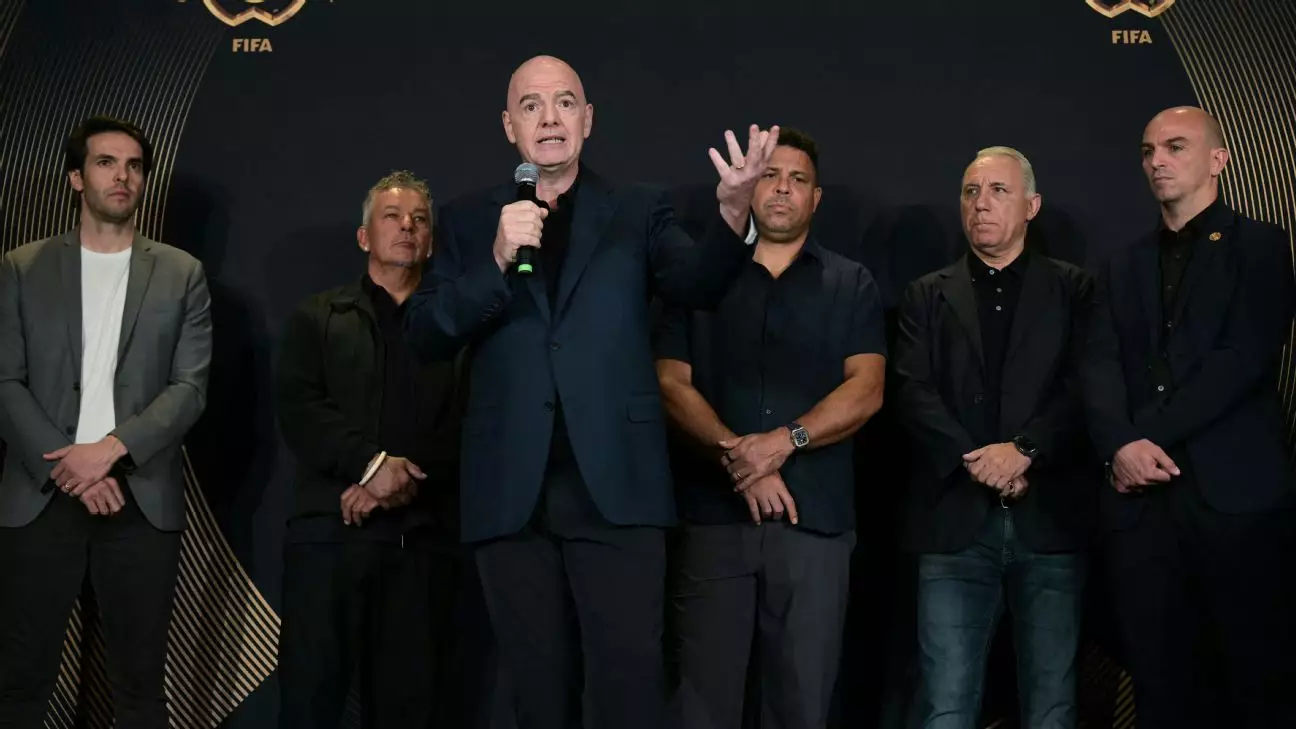The global game of soccer stands at a crossroads, compelled to adapt to the increasingly unpredictable climate while maintaining its universal appeal. Recent controversies surrounding the scheduling and infrastructure of major tournaments reveal a sport eager for innovation and resilience. Traditional stadiums, long-standing symbols of football’s heritage, now face scrutiny as climate change introduces extreme weather patterns that threaten player safety and spectator enjoyment. The response from FIFA leadership demonstrates a recognition of this crisis, signaling a determined shift towards more sustainable practices by integrating advanced stadium technology.
One of the most pressing issues highlighted is the safety concern due to heat and thunderstorms during high-profile matches. In the United States, a string of matches during the recent Club World Cup experienced alarming temperatures, with players expressing discomfort and risking health complications. These incidents illuminate the urgent need to rethink event logistics, especially for tournaments scheduled in vastly different environments. The inclusion of stadiums with retractable roofs and climate control features isn’t a luxury; it’s an imperative for safeguarding athletes and fans alike.
Modern stadium architecture is evolving beyond mere aesthetics, embracing functionality that ensures comfort regardless of external conditions. Covering venues with retractable roofs, integrated cooling systems, and advanced weather mitigation technology signifies a forward-thinking approach that aligns with global climate realities. By actively choosing to stage matches in stadiums equipped with these features, organizers can mitigate weather-related disruptions, prevent health crises, and preserve the integrity of the game. Such infrastructure advancements also exemplify how sports entities can take leadership in sustainable development and environmental responsibility.
Challenging the Status Quo: Innovation as a Catalyst for Growth
FIFA’s decisions and public statements reflect a broader strategic shift—a willingness to challenge entrenched traditions to foster progress. The introduction of a broader club competition, notably the planned summer Club World Cup featuring 32 teams, exemplifies this bold move. Although critics have raised concerns about scheduling and the quality of competition, this expansion indicates a desire to elevate the sport’s profile and create more meaningful global engagement. The idea is to forge new opportunities for clubs and fans, making international club tournaments more inclusive and competitive.
The push to push boundaries is also evident in FIFA’s openness to hosting more games in covered stadiums and exploring the potential benefits of climate-controlled environments. Such measures could redefine the fan experience, creating a climate-resilient platform for the sport’s growth. Additionally, the organization’s openness to feedback reflects a willingness to evolve, acknowledging that criticism can serve as a foundation for better policies. This adaptability signals an acknowledgement that modern football cannot ignore the tangible impacts of climate change—rather, it must proactively address them to maintain its status as the world’s most beloved sport.
Leaders like Gianni Infantino situate innovation within a broader narrative of global progress, emphasizing the importance of enhancing infrastructure and rethinking scheduling. The framing of these decisions as part of a “golden era” suggests confidence, but behind that confidence lies an awareness of the challenges and criticisms that come with change. A truly sustainable future for the sport requires not only technological upgrades but also a shift in mindset—embracing growth, inclusivity, and environmental consciousness as core principles.
Strategic Vision: Merging Tradition with Future-Oriented Innovation
The discourse from FIFA underscores a significant tension in sports: balancing respect for tradition with the necessity for modern innovation. While some purists may resist changes like expanded tournaments or climate-controlled stadiums, these steps are vital for the sport’s survival and proliferation. By integrating advanced technology and reimagining tournament formats, FIFA positions itself as a pioneer preparing soccer for the realities of the 21st century.
Involving high-profile figures, such as former presidents and global leaders like Donald Trump, signals the increasing political and cultural importance of soccer. Their presence at major events underscores how the sport transcends mere entertainment, becoming a platform for societal engagement and international diplomacy. This convergence of sports, politics, and innovation could lead to a more dynamic and resilient global football ecosystem.
The strategic focus now must be on fostering sustainability, inclusivity, and safety at every level. Whether it’s through designing smarter stadiums, implementing innovative scheduling, or expanding tournament formats, the vision is clear: soccer must evolve or risk irrelevance. The decisions made today will shape the sport’s legacy for generations to come, and those choices require not just technological savvy but also visionary leadership committed to making football a safer, more inclusive, and environmentally responsible sport.

